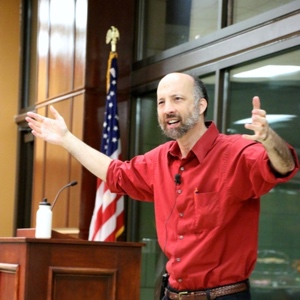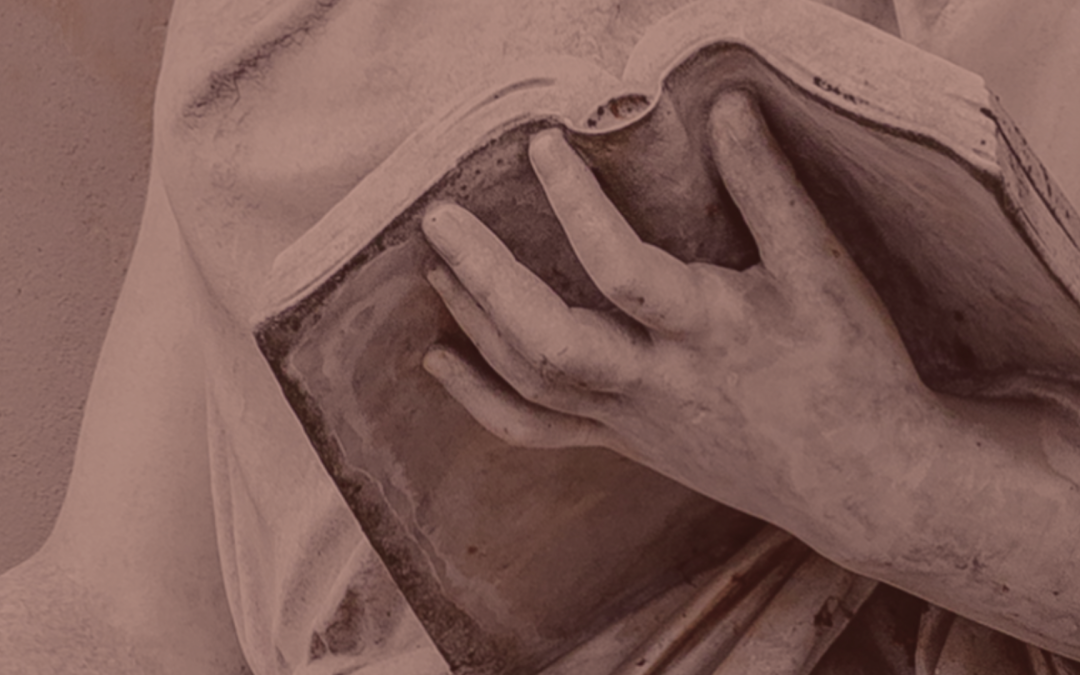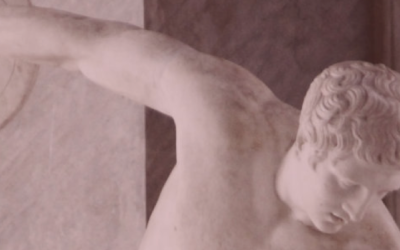Socrates Canceled
A Charge to Classical Graduates¹
|
|
Written By: Louis Markos, Houston Baptist University
The first major victim of democratic cancel culture was silenced and then put to death in 399 BC. His name was Socrates, and he was 70 years old. The radical democracy that put Socrates on trial did have charges, but they were trumped up and false. They accused him of advocating foreign gods, making the weaker argument the stronger, and corrupting the youth of Athens. The sad irony is that Socrates was not only not guilty of these charges; it was his accusers who were guilty of the very sins that they projected onto Socrates.
Socrates may have technically advocated foreign gods but that is only because he was moving beyond the arbitrary gods of Homer to a single, holy God. His accusers, in contrast, had sunk below Homer’s gods to worship absolute power and freedom. It was not Socrates who made the weaker argument the stronger but the sophists who believed that morality changed from one city state to the next. It was not Socrates who corrupted the youth, but the citizens of Athens who had given way to political expediency and lost the high ideals that they had defended during their Golden Age.
Of course, behind these three charges was the real charge. Socrates was an absolutist who believed in universal, cross-cultural standards of goodness, truth, beauty, and justice, while his accusers embraced moral, political, ethical, and aesthetic relativism. And behind that was simple envy, envy that Socrates was willing to stand his ground and uphold absolute standards of truth while they had given way to an anything-goes ethos.
It is sad and troubling to say, but today the same accusations that the radical Athenian democracy projected on to Socrates are being projected by the public-school establishment onto the growing number of private and public classical schools. And yet, as was the case with Socrates, it is the progressive, not the classical schools that are guilty of the same three charges.
It is they who have bowed the knee to the false gods of consumerism and egalitarianism. It is they who have radically redefined the meaning of such words as justice, sex, gender, marriage, violence, hate, and racism, and who have given up rational discourse to shout down anyone who disagrees with them. It is they who have corrupted the youth by abdicating their responsibility to instill absolute morals and virtues, and by enabling them to destroy their own God-given identity and personhood. Of course, like Socrates’ virtue-signaling accusers, what they ultimately hate about classical schools is that they stand for absolute standards of goodness, truth, beauty, and justice and therefore expose the hollowness of their own relativism.
Heavy is the Mantle of Socrates
To all of you who have graduated recently from a classical school or who will do so soon, I urge you to think carefully on Socrates and his fate. Although you need not fear the death penalty or prison, you must be prepared to face ridicule, slander, and willful misunderstanding from the wider culture. You are all recipients of a Socratic education, and not merely in the sense that your teachers engaged you in a vigorous dialogue grounded in a question-and-answer dialectic.
After the manner of Socrates and his pupil Plato, you have been taught to seek after and define words in their divine and absolute sense, to look past the many and competing small “t” truths to gaze upon truth with a capital “T.” You have been taught, further, to transcend the fashionable, man-made values of your historical-cultural-social moment so that you may imitate—and shape your beliefs and behaviors against—God-ordained virtues that are true for all people at all times.
I say again that if you remain true to what you have been taught, you will likely become an object of public scorn. But do not fear. Even as Socrates was canceled by the radical democracy of Athens, he responded with a defense of himself and his mission that is perhaps more relevant today than at any other time in history.
The word for defense in Greek is apologia and thus we call the speech he gave before the Athenian jury, Socrates’ Apology—or, because it was later written down by his pupil, Plato’s Apology. Join me then as we draw from Socrates’ defense a timeless and timely message with the power to spur us all on to virtuous living that honors and embodies goodness, truth, beauty, and justice.
Subscribe!
Get the latest from Classis delivered every few weeks to your inbox.
I, Socrates: Defending The Wisdom of Humility
When Athens was strong and confident, she was happy to allow Socrates to accost citizens in the agora (or marketplace) and question them on the nature of virtue. For the last twenty years, however, as her civil war with Sparta had accelerated, Athens had abandoned her dedication to justice in favor of an ends-justifies-the-means ethos. Instead of a city on the hill devoted to ordered liberty and responsible freedom, she had morphed into a meddling superpower willing to do whatever it took to retain her dominance.
Well aware that she was no longer living up to her professed democratic ideals, Athens became less and less willing to have those ideals questioned by Socrates. But that did not stop Socrates. As he explains in the Apology, his mission had been given to him many decades earlier by the Oracle of Delphi, and he did not feel free to abandon it, even under the threat of death.
. . . therefore I asked myself on behalf of the oracle, whether I would like to be as I was, neither having their knowledge nor their ignorance, or like them in both; and I made answer to myself and the oracle that I was better off as I was. This investigation has led to my having many enemies of the worst and most dangerous kind, and has given occasion also to many calumnies, and I am called wise, for my hearers always imagine that I myself possess the wisdom which I find wanting in others: but the truth is, O men of Athens, that God only is wise; and in this oracle he means to say that the wisdom of men is little or nothing; he is not speaking of Socrates, he is only using my name as an illustration, as if he said, He, O men, is the wisest, who, like Socrates, knows that his wisdom is in truth worth nothing. (Benjamin Jowett translation)2
Like Socrates, it is vital that you accept both your potential and your limits. According to Genesis, we are all made in God’s image, and thus possess inherent value and worth, but are fallen and sinful. Although Socrates did not have access to the Old Testament, he understood this duality in our nature. It is that understanding that gave him the courage and the self-confidence to rise above the crowd and assert his uniqueness, while yet confessing to his weakness and ignorance.
Is Socrates then teaching us to be true to ourselves? Yes and no. He is certainly not teaching us that we can be anything we want to be, that we can shake our fist against God and claim the absolute right to remake ourselves in our own image. His acknowledgment that God only is wise and that his own wisdom is, in comparison, worthless gives the lie to the radical individualism of our own age that demands that society conform to our every passing whim. Still, Socrates does call on us to remain true to the calling on our lives and to fulfill the mission that has been appointed to us by God.
Socrates neither exalts nor denigrates himself, and we should strive to do the same. If you forget you are a glorious creature made in God’s image, then you will allow yourself to be brainwashed and manipulated by every new fashionable value in our ever-shifting agora of ideas. If you forget you are a sinner with a fallen nature, then you will falsely convince yourself that you do not need to heed the wise counsel of others or adhere to the rules of proper conduct. You can do great things, but you are not invulnerable, and you are not immune from temptations to lust, greed, and pride. Do what you can to make this world a better place, but do not delude yourself into thinking you can build utopia.
You can do great things, but you are not invulnerable, and you are not immune from temptations to lust, greed, and pride.
Although your calling from God will be different from that of Socrates, you do share something with him for which you are accountable: an education in philosophical truth and ethical virtue that knows the difference between first and second things and ordered and disordered desires. In the increasingly relativist world that we live in, where public schools often see it as their mission to deny absolute truth and promote disordered desire, you must insist that words and actions have real meanings and consequences.
Socrates knew the jury would let him off if he stopped insisting on true definitions for words and true standards for behavior. Nevertheless, he refused to abandon his mission:
Men of Athens, I honor and love you; but I shall obey God rather than you, and while I have life and strength I shall never cease from the practice and teaching of philosophy, exhorting anyone whom I meet after my manner, and convincing him, saying: O my friend, why do you who are a citizen of the great and mighty and wise city of Athens, care so much about laying up the greatest amount of money and honor and reputation, and so little about wisdom and truth and the greatest improvement of the soul, which you never regard or heed at all? Are you not ashamed of this? And if the person with whom I am arguing says: Yes, but I do care; I do not depart or let him go at once; I interrogate and examine and cross-examine him, and if I think that he has no virtue, but only says that he has, I reproach him with undervaluing the greater, and overvaluing the less.3
As graduates of a classical school who have been trained to seek after goodness, truth, and beauty and exhorted to live lives of virtue, it is vital that you do not abandon your post. Wherever you are led to live and whatever you are led to do, your calling should include a commitment to bear witness to truth and virtue. You should first call yourself and then call others to lift their eyes above the temporal quest for money, power, and influence and fix them instead on the eternal quest for faith, love, joy, and peace.
Later in the Apology, Socrates clarifies his mission by comparing himself to a gadfly attached to the state. Just as a gadfly stings a horse out of its lethargy and stupor, so Socrates sought to rouse up the lukewarm horse of state and compel it to stay true to its duty of instilling virtue and enterprise in its citizens. In the middle of the twentieth century, Martin Luther King, Jr. would consciously play the role of a gadfly whose stings forced America to awaken from her moral slumber and seek true justice for all people.
And you will be hated by all for my name’s sake. But the one who endures to the end will be saved.
– Mark 13:13 (ESV)
Knowing Thyself: You Too Shall be Socrates
In the tradition of Socrates and King, you too must challenge your fellow citizens to pursue wisdom and righteousness and to use their freedom to promote liberty rather than license, hope rather than hate, spiritual growth rather than selfish gain. Do not allow fear or apathy or false humility to cause you to abandon your post. Instead, be like Socrates, who made it clear that he would not stop his teaching even if it meant his death:
For if I tell you that this would be a disobedience to a divine command, and therefore that I cannot hold my tongue, you will not believe that I am serious; and if I say again that daily to discourse about virtue, and of those other things about which you hear me examining myself and others, is the greatest good of man, and that the unexamined life is not worth living, you are still less likely to believe me.4
The young people of your generation have been encouraged since they were children to engage in excessive introspection. Although such navel gazing may seem, on the surface, to line up with Socrates’ bold claim that the unexamined life is not worth living, the two pursuits could not be more different.
The Socratic mandate to know thyself, like David’s wish to have God search his heart and know his anxious thoughts (Psalm 139:23-24), is motivated by a desire for a kind of illumination that will align us with that which is good, true, and beautiful. Introspection, in contrast, allows its practitioners to free themselves from all guilt and shame and to lay the blame, instead, on their parents or teachers or pastors or society for why their lives are not what they would wish them to be.
Examine yourselves, then, but in such a way that you will be convicted rather than complacent, transformed rather than justified. Be lifelong learners, devoted to continual intellectual, moral, emotional, and spiritual growth. Keep reading and questioning and wrestling, but as one who desires final answers rather than one who has despaired of their existence. Above all, let your pursuit of wisdom and virtue provoke in you awe and wonder, never cynicism and skepticism.
Justin Martyr, who gave his life for Christ in the early second century, considered Socrates to be a martyr for monotheism. Our word martyr comes from a Greek verb that means “to bear witness,” and Socrates was supremely one who bore witness to the truth, no matter the cost to himself. I do not fear that those of you who bear witness to the truth will be compelled to drink hemlock by the democratic government of America, but there will be resistance and there will be ridicule.
But be of good cheer. Have courage and faith and stick to your post. Remember the Apology, and, as you do, cling to the promise of Christ: “And you will be hated by all for my name’s sake. But the one who endures to the end will be saved” (Mark 13:13; ESV).

Louis Markos, Professor in English and Scholar in Residence at Houston Baptist University, holds the Robert H. Ray Chair in Humanities; his 23 books include From Achilles to Christ, The Myth Made Fact, From Plato to Christ, and Ancient Voices: An Insider’s Look at Classical Greece. He has delivered versions of this essay as a charge to the graduates of Geneva classical Christian school in Lakeland, FL, and Founders classical charter school in Lewisville, TX.
Footnotes
1. A shorter version of this essay was delivered as the commencement address for the graduation ceremony at Geneva Classical Academy in Lakeland, Florida.
2. Plato, Apology, 23a.
3. Ibid., 29d.
4. Ibid., 37e-38.
Recommended Reading




